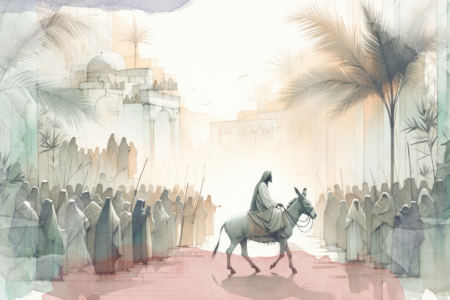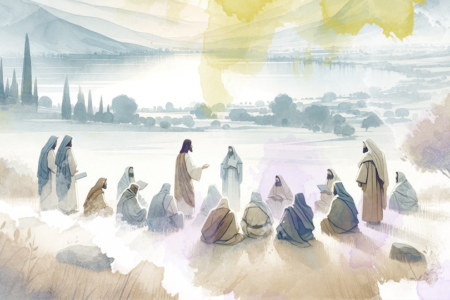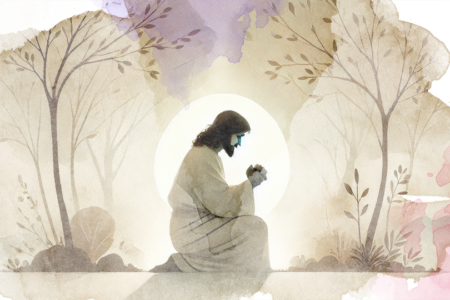The Life, Times And Message Of Isaiah The Prophet Jehovah’s Reply to Israel’s Pleadings
ISAIAH CHAPTER 65
1 I was sought by them who did not ask for Me,
I was found by them who did not seek Me;
I said: ‘Here I am, here I am’ to a nation,
Which was not called by My name.
2 All day long have I spread out My hands
To a rebellious people,
Who walk in a way which is not good,
Following their own thoughts.
3 This people that angers Me constantly to My face,
Who sacrifice in the gardens and burn incense upon bricks.
4 Who sit in the graves and spend nights in the vaults,
Who eat the flesh of swine,
And the broth of foul things is in their vessels.
5 Who say: “Keep to Thyself, do not come close to me,
For I am holy to thee,”’
These are a smoke in My nostrils, a fire which burns all day.
6 Behold, it is written before Me;
I will not be silent until I repay,
And I will pay them back in their laps.
7 Your iniquities together with the iniquities of your fathers,
Who burned incense on the mountains,
And blasphemed Me on the hills, says the LORD;
I will first measure out their reward into their laps.
Comment:
1-7 The cause of Israel’s pitiful plight
The last chapter ended with a heartbreaking description of Israel’s pitiful plight ending with a challenge to Jehovah: “Wilt Thou, be silent and afflict us to the utmost?” (64:12).
Now Jehovah answers the people:
1 I was sought by them who did not ask for Me
I was found by them who did not seek Me
The question arises who are they who did not seek Jehovah and yet found Him? The majority of Jewish commentators are of the opinion that God addresses Himself to the same people, that is the Jews, In both verses 1 and 2. On the other hand Christian commentators usually apply v. 1 to the Gentiles and v. 2 to the Jews, which seems to be the meaning.
The expression, “I was found by them,” (in Hebrew, nidrashti) is the reflective passive form of the verb—darash—to seek, to inquire after.
I said: ‘Here I am, here I am’ to a nation which was not called by My name Jehovah made Himself known to a nation which originally was not called by Him. The expression, nation—go, is usually applied to a non-Jewish nation, although it should be noticed that on a number of occasions Israel, too, is called, “goi”. Israel is generally called, “am”—”a people”.
2 All day long have I spread out My hands to a rebellious people
This is the tragedy of Israel; while God constantly pleaded with His people to follow Him in faith, their response was rebellion and defiance. By contrast many of the Gentiles to whom God has not specifically made Himself known as He did to Israel, they nevertheless found Him. The conversion of Gentiles to Jehovah happened from time to time in the pre-Chnstian era but later became a widespread reality through the Messiah of Israel and His apostles. Paul understood these two verses in the above sense (Rom. 10:20-21).
On the basis of the above two verses and also some other passages, many theologians, including some of the Reformers concluded that God has rejected Israel and that believing Gentiles or the Church are now “The Israel of God” or ‘The New Israel”. This misinterpretation has continued through the centuries even to the present time, thus obscuring the true meaning of the Scriptures concerning the relationship between historical Israel and the Church.
In this passage the prophet is merely emphasizing the sharp contrast between rebellious Israel with whom Jehovah has pleaded for many generations and those Gentiles who one day will of their own free will come to Him, although they have not been instructed and wooed by the prophets, as Israel has been.
3-5 A detailed description of Israel’s idolatry
3 This people that angers Me constantly to My face
Who sacrifice in the gardens and burn incense upon bricks
The idolatry described here resembles the Canaanite and other Semitic cults. The burning of incense on bricks or brick altars may have been of Babylonian origin.
4 Who sit in the graves and spend nights in the vaults
This was one of the ancient necromantic cults specifically forbidden in Scripture (see Dt. 18:11, 1 Sam. 28:3 ff).
Who eat the flesh of swine
The meat of swine was forbidden to Israel as ritually impure (Lev. 11:7ff, Dt. 14:8).
And the broth of foul things is in their vessels
The broth, here written (ketib), “parak,” should be read, “marak”—a broth, or thick soup.
“Foul Things,”’ Hebrew “piggulim” refers to the foul creatures alluded to in Isa. 66:17 and to the creeping or crawling creatures, forbidden in Lev. 11:41, 47.
5 … “Keep to Thyself, do not come close to me, for I am holy to thee”
The utter perversity of the apostate people who practice these abominable cults is apparent in the fact that they consider themselves holy or sanctified by these idolatrous rites, or as the KJV puts it “holier than thou”. That which is their shame, they consider as their pride.
These are a smoke in My nostrils, a fire which burns all day
All their evil and immoral practices constantly provoke God to anger and bring about His retribution.
6 Behold, it is written before Me; I will not be silent until I repay
And I will pay them back in their laps
God keeps strict account of the misdeeds of the wicked (and of the righteous also). There is a common belief held among the Jews, even to the present day, that God keeps balance sheets of the deeds and misdeeds of His people and judges them accordingly (especially on the Day of Atonement). The Lord will not rest until He settles accounts with the evildoers. “To repay in their laps” is a figure of speech, meaning to punish in full measure.
7 Your iniquities together with the iniquities of your fathers
The iniquities of Israel have a long history and go way back to their ancestors. Before a righteous God can again be merciful to His people, He must first measure out punishment to the wicked. He cannot be merciful to unrepentant sinners, without compromising His holiness and righteousness.
8-16 Nevertheless Jehovah will preserve a faithful remnant after punishing the rebels
8 Thus says the LORD: as when new wine is found in a cluster
And one says: “destroy not, for there is a blessing in it,”
So will I do for the sake of My servants not to destroy all.
9 And I will bring forth a seed from Jacob
And from Judah an heir of My mountains.
And Mine elect shall inherit it,
And My servants shall dwell there.
10 And Sharon shall be a fold for flocks,
And the valley of Achor a place for herds to lie down,
For My people who have sought Me.
11 But you, forsakers of the LORD, who forget My holy mountains,
Who prepare a table for Gad, (the idol of Fortune),
Who fill a mixed potion for Meni, (the idol of Destiny):
12 I will destine you to the sword,
And you shall bow down to the slaughter,
Because when I called, you answered not.
When I spoke, you did not hear,
But did that which was evil in Mine eyes
And chose that in which I had no pleasure.
13 Therefore, thus says the LORD:
Behold, My servants shall eat but you shall hunger,
Behold, My servants shall drink, but you shall thirst.
14 Behold, My servants shall sing for joy of heart,
But you shall cry for grief of heart and wail from a broken spirit.
15 And you shall leave your name for a curse for Mine elect:
“Thus may the LORD God slay thee.”
But His servants He shall call by another name.
16 So that he who blesses himself on earth,
Shall bless himself by the God of Truth,
And he who swears on earth,
Shall swear by the God of Truth.
Because past troubles shall be forgotten
And are hidden from Mine eyes.
Comment:
8-16 Jehovah promises that although He will exact severe punishment from those who defied Him, He will not completely obliterate His people, but preserve for Himself a remnant.
8 . . . as when new wine is found in a cluster
Just as the vinedresser may preserve a cluster, after the grapes have been pressed out, for the sake of the little wine which may still be left, so will the LORD spare a remnant of the nation for the sake of His faithful servants. Thus the idea of a remnant emerges again just as in the earlier writings of Isaiah (1:8-10:20-23, 11:11-16).
9 And I will bring forth a seed from Jacob
This preserved seed of Jacob, the remnant, shall again repossess the land and inhabit it,
10 And Sharon shall be a fold for flocks and the valley of Achor… for herds
Sharon is the fertile valley stretching from the Carmel mountains in the north, down to Yaffa (Tel Aviv) in the south. The valley of Achor runs from the lower regions of the river Jordan to the plains of Jericho in the south. The prophet, therefore, is predicting that Israel’s remnant shall again inhabit their land from north to south.
11 But you, forsakers of the LORD, who forget My holy mountains
From v 11-16, the prophet predicts an unhappy end to the idolatrous majority among the people. To forget “the holy mountains of God” refers to the abandonment of God’s holy temple for the spurious cults of the various idols mentioned below.
Who prepare a table for Gad (the idol of Fortune)
Who fill a mixed potion for Meni (the idol of Destiny)
Gad and Meni were the gods of Fortune and Destiny, worshipped among the Semitic peoples and identified later by the Greeks and Romans with Jupiter and Venus. The prophet declares that Jehovah alone is the sole controller of the destiny of men and nations. To worship “good luck” or “good fortune” idols is a denial of the sovereignty of the LORD. It is hardly necessary to mention that the ancient cults of Gad and Meni have their modern counterparts in astrology, chiromancy, card reading, fortune telling, etc.
12 I will destine you to the sword
Alluding to the idol Meni, Isaiah uses the verb “’manithi”—”l will destine,as a warning that God will destine those who worship Meni to the sword. The reason for their unhappy future destiny will be the result of their oblivion to Jehovah’s voice and their neglect of His pleadings.
13-14 The dismal contrast between the sinful majority and the godly remnant is graphically depicted.
15 And you shall leave your name for a curse for Mine elect
Literally for a swearword or curse. The name of the ungodly shall be used as a grim warning when it will be said: “So may the LORD God slay thee” (as He did those wicked men).
But His servants He shall call by another name
It will be a new name of honor and distinction, suitable to their new status as servants of the Lord (cf. Gen. 32:28 – Jacob – Israel).
16 So that he who blesses himself on earth shall bless himself by the God of Truth
Just as the name of the ungodly shall be used as an execration, so shall the name of God’s servants be used for a blessing, remembering what the God of Truth, literally the God of Amen, has done for His faithful ones (see 2 Cor. 1:20).
Because past troubles shall be forgotten and are hidden from Mine eyes
The unhappy past shall be crowded out by the new, glorious events which lall replace them.
(Chapter 65 to be continued)







